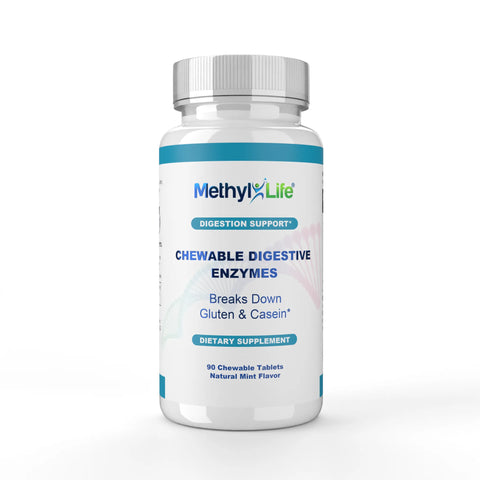What are digestive enzymes and what do they do?
Digestive enzymes are special chemicals naturally produced by the body to break down fats, proteins, and carbohydrates in the food we eat. Protease enzymes break down general proteins such as casein and gluten, while specific enzymes including prolyl endopeptidases and other specific proteases target gluten peptides.1
Digestive enzymes are produced in the salivary glands, stomach, pancreas, and small intestine, and also help with the absorption of nutrients.2
Digestive enzymes can also be taken as supplements. These can be helpful if your body isn’t producing enough enzymes on its own. The secretion of pepsin and pancreatic enzymes declines with age, and can also be affected by medications and certain health conditions.3












